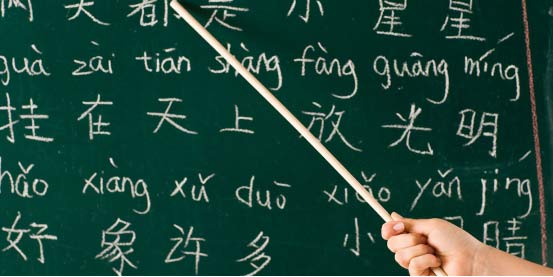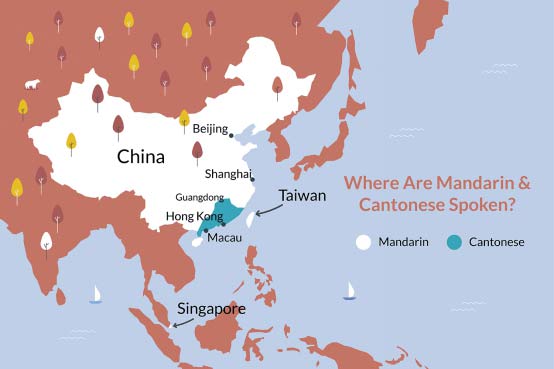Chinese Language and Me
Speaking Chinese fluently is the dream of many international students. Because China is gradually returning to the world's major powers, the ability to speak Chinese language is becoming a valuable skill. what is Chinese language? What type of Chinese language should I study? How can I learn Chinese? These have become problems for international students in China. This time we invited John to tell you about his experiences in China and help solve these puzzles.

1. Why study Chinese language?
Hello! My name is John and I am a student studying in China for 2 years. When I first attended a Chinese university, the strange environment and language really made me feel uncomfortable. But the friendly enthusiasm of the Chinese, the diversity of Chinese university courses made me determined to learn Chinese. This is my motivation to learn Chinese. I didn't even think about how to learn Chinese, because Chinese is so charming and practical, I really need to learn Chinese well. For those who want to master Chinese language, they should focus on understanding Chinese culture and communicating with Chinese.

2. What is the Chinese language?
For most international students who want to study at a Chinese university, Chinese is only the official language of China. This is true, but it is not just that. Chinese is part of the Sino-Tibetan language family. About one-fifth of the world's people speak some form of Chinese as their mother tongue, making it the most spoken language. Despite the variety of words, the Han people have a common script that makes communication between people a possible incomprehensible dialect.
The most standard Chinese language is Mandarin. If you are a beginner, it is best to master Mandarin first. Mandarin is the official language of the People's Republic of China. Mandarin is one of the fastest growing languages in the world. In the United States, Chinese is one of the most popular foreign languages after Spanish and one of the official languages of the United Nations.
It is used in most parts of northern China and in western China. Mandarin is used for formal communication in government, media or education. Those who speak Mandarin as a second language will use their native languages on less formal occasions, such as conversations between family, relatives, and friends.
Chinese has no letters with more than 50,000 characters. Chinese is a tonal language with four tones. This means that a given syllable can be pronounced in 4 different tones. Pinyin is an auxiliary way to learn Mandarin. It is a great help when you are learning a language or trying to type in your computer. People who are educated in China know about 8,000 characters, but you only need to learn 2000-3000 characters. Of course, if you want to get higher Chinese skills or get a high-level HSK certificate, you need to master more Chinese characters.
In addition to the Han majority, there are 55 ethnic minorities in China. The Han people account for about 92% of China's total population. About two-thirds of the Han population use Chinese as their mother tongue, so a large part of the Han is bilingual. All in all, more than 955 million native speakers around the world use Mandarin.
In Chinese universities, most students speak Mandarin. In this environment for a long time, I did not consciously learn Mandarin. Therefore, coming to China to study is the best way to learn Mandarin.

3. What dialects are there in Chinese?
There are more than 200 different dialects in China, and the seven main dialects are Mandarin, Cantonese, Hakka, Wu, Min, Xiang and Gan. The differences can be very large and you can think of them as separate languages. I have already introduced Mandarin just now. The following mainly explains the Cantonese and Shanghai dialect, not only because of the large population of these two dialects but also because many international students are interested in them.
Cantonese is the dialect of the Guangzhou area. Due to the immigrants of Cantonese immigrants, dialects are also used in Vietnam, Thailand, Singapore, Malaysia, some cities in Canada and the United States. The difference between Cantonese and Mandarin is mainly spoken language. Cantonese speakers use standard Mandarin when reading and writing. On the mainland, this is mainly simplified Chinese, while traditional characters are used in Hong Kong and Macau. Just like Mandarin, Cantonese is also a tonal language.
Shanghai dialect is Wu dialect 14 million people speak in Shanghai and Hong Kong. There is no written form, just an oral version, but it is not used for education and occasionally for local radio stations. If you are studying at a university in Shanghai, when you have mastered Mandarin, it is best to start learning Shanghai dialect. It can help you build closer ties with local Shanghai people.
My first choice is definitely Mandarin, for the simple reason. Most Chinese speak Mandarin in one way or another. Most people in Hong Kong also speak English and Mandarin. Shanghai people speak perfect Mandarin, and many people speak English. However, if you really want to immerse yourself in your environment and build a strong relationship, you should speak the same dialect as the locals.
No matter which Chinese dialect you choose, every dialect requires your hard work, the open mind and ability to challenge yourself.
4. How should I learn Chinese?
The quickest and most effective way is to live in China for a few months and immerse yourself in Chinese language and culture. You can choose an in-depth study plan or live and work there.
As you may already know, Chinese is a tonal language. First, you need to master the tone. Spend a lot of time listening and recognizing the four different tones and then practicing the tones aloud.
After that, you should learn how to pronounce Chinese words in Pinyin, which will give you the tone of the word. These tones are represented by the direction of the stroke, and you will encounter these tones as you learn the four tones.
Now you are ready to learn the basics. As with any other language, being able to greet and introduce yourself is almost your top priority and learn to count.
This is what you learn from the pitch and pinyin. Try reading pinyin and pronounce it yourself, then listen to an audio clip to see if it matches.
Write a lot of Chinese phrases and read articles every day. Don't forget to communicate with the Chinese. Good luck!




